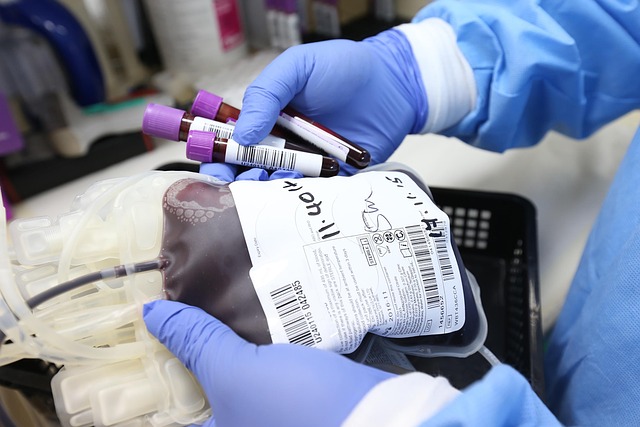Heart Failure Treatment: Understanding Signs and Care Options
Heart failure affects millions of Canadians and represents a serious medical condition where the heart cannot pump blood effectively throughout the body. Understanding the early warning signs and available treatment options is crucial for managing this condition successfully. While heart failure sounds frightening, modern medical advances have created numerous treatment pathways that can help patients maintain quality of life and slow disease progression when caught early.

What are the Early Signs of Heart Disease
Recognizing heart disease in its initial stages can significantly impact treatment outcomes. Common early indicators include chest discomfort or pain, particularly during physical activity or stress. Many people experience unusual fatigue that seems disproportionate to their activity level. Shortness of breath during routine tasks like climbing stairs or walking short distances may signal developing heart problems. Some individuals notice irregular heartbeats, dizziness, or nausea. Swelling in the legs, ankles, or feet can also indicate that the heart is struggling to pump blood effectively. Pain or discomfort that radiates to the arms, neck, jaw, or back should never be ignored, as these symptoms may indicate reduced blood flow to the heart muscle.
Early Heart Failure Signs to Monitor
Heart failure develops gradually, and recognizing its early manifestations allows for prompt medical intervention. Persistent coughing, especially when lying down, often occurs as fluid begins accumulating in the lungs. Sudden weight gain over a few days may indicate fluid retention throughout the body. Increased urination at night happens as the body attempts to eliminate excess fluid when lying flat. Reduced appetite and feelings of fullness can develop as fluid accumulates around the liver and digestive organs. Many patients report feeling confused or having difficulty concentrating, which results from reduced blood flow to the brain. Sleep difficulties, particularly needing multiple pillows to breathe comfortably while lying down, frequently accompany early heart failure.
Sign and Symptom of Heart Failure Progression
As heart failure advances, symptoms typically become more pronounced and frequent. Severe shortness of breath may occur even during rest or minor activities. Persistent fluid retention causes noticeable swelling in the lower extremities, abdomen, and sometimes the face. The characteristic heart failure cough often produces white or pink-tinged phlegm, indicating fluid in the lungs. Chest pain may intensify and occur more frequently. Extreme fatigue can make daily activities challenging or impossible. Some patients develop a bluish tint to their lips or fingernails, indicating insufficient oxygen in the blood. Rapid or irregular heartbeat becomes more noticeable as the heart works harder to compensate for its reduced pumping ability.
Symptom of Heart Problems Requiring Immediate Attention
Certain symptoms demand immediate medical evaluation and potentially emergency treatment. Sudden, severe chest pain that feels like crushing or squeezing pressure requires immediate attention. Difficulty breathing that develops rapidly or worsens significantly should prompt emergency care. Fainting or near-fainting episodes, especially when accompanied by chest pain or severe shortness of breath, need urgent evaluation. Sudden confusion, difficulty speaking, or weakness on one side of the body may indicate stroke related to heart problems. Rapid weight gain of more than two to three pounds in a single day or five pounds in a week suggests serious fluid retention. Severe swelling that develops quickly, particularly if accompanied by breathing difficulties, requires prompt medical assessment.
Here are 10 Signs of Heart Disease Summary
Healthcare professionals typically look for these ten key indicators when evaluating heart disease: chest pain or discomfort, shortness of breath, fatigue beyond normal expectations, irregular heartbeat or palpitations, dizziness or lightheadedness, swelling in legs or feet, persistent cough, nausea or loss of appetite, sweating without apparent cause, and pain radiating to arms, neck, or jaw. These symptoms may appear individually or in combination, and their severity can vary significantly between patients. Some people experience subtle symptoms that develop gradually, while others may have more dramatic presentations. Age, gender, and underlying health conditions can influence how heart disease symptoms manifest, making regular medical checkups essential for early detection.
Treatment Approaches and Healthcare Costs in Canada
Heart failure treatment in Canada involves multiple healthcare professionals and various therapeutic approaches. Treatment costs vary depending on the severity of the condition and required interventions. Through provincial health insurance, most Canadians have coverage for essential heart failure treatments, though some medications and specialized services may require additional coverage.
| Treatment Type | Typical Coverage | Estimated Annual Cost |
|---|---|---|
| Cardiology Consultations | Full provincial coverage | $0 - $200 out-of-pocket |
| Heart Failure Medications | Partial coverage varies by province | $500 - $3,000 annually |
| Cardiac Rehabilitation | Covered in most provinces | $0 - $500 out-of-pocket |
| Advanced Procedures | Full coverage for medically necessary | $0 - $1,000 out-of-pocket |
Prices, rates, or cost estimates mentioned in this article are based on the latest available information but may change over time. Independent research is advised before making financial decisions.
Heart failure treatment typically involves lifestyle modifications, medications to improve heart function and manage symptoms, and regular monitoring by healthcare professionals. Advanced cases may require specialized procedures such as device implantation or surgical interventions. The key to successful heart failure management lies in early detection, adherence to treatment plans, and ongoing communication with healthcare providers. Patients who recognize symptoms early and seek appropriate medical care often experience better outcomes and maintain higher quality of life for longer periods.
This article is for informational purposes only and should not be considered medical advice. Please consult a qualified healthcare professional for personalized guidance and treatment.




